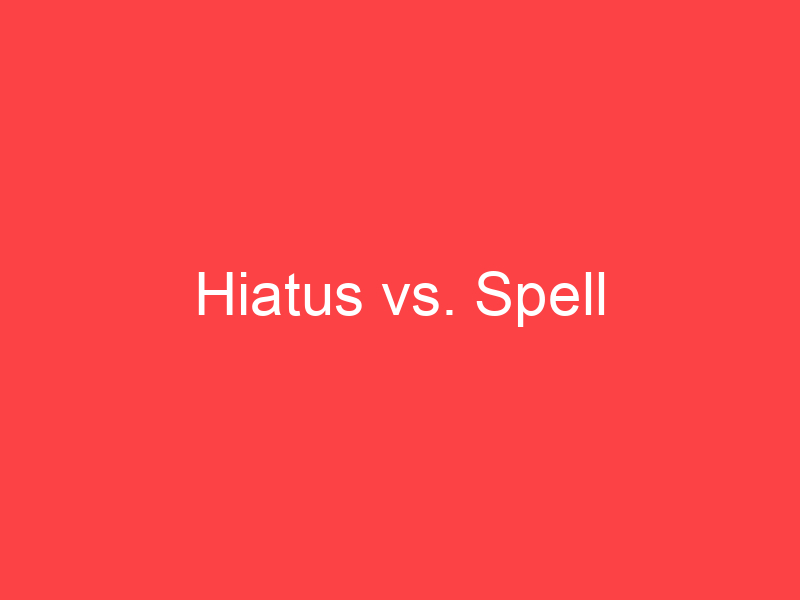-
Hiatus (noun)
A gap in a series, making it incomplete.
-
Hiatus (noun)
An interruption, break or pause.
-
Hiatus (noun)
An unexpected break from work.
“Twenty one pilots’ hiatus seems like it‘s never going to end.”
-
Hiatus (noun)
A gap in geological strata.
-
Hiatus (noun)
An opening in an organ.
“Hiatus aorticus is an opening in the diaphragm through which aorta and thoracic duct pass.”
-
Hiatus (noun)
A syllable break between two vowels, without an intervening consonant. (Compare diphthong.)
“Words like reality and naïve contain vowels in hiatus.”
-
Spell (noun)
Words or a formula supposed to have magical powers. from 16th c.
“He cast a spell to cure warts.”
-
Spell (noun)
A magical effect or influence induced by an incantation or formula. from 16th c.
“under a spell”
-
Spell (noun)
Speech, discourse. 8th-15th c.
-
Spell (noun)
A shift (of work); a set of workers responsible for a specific turn of labour. from 16th c.
-
Spell (noun)
A definite period (of work or other activity). from 18th c.
-
Spell (noun)
An indefinite period of time (usually with a qualifier); by extension, a relatively short distance. from 18th c.
-
Spell (noun)
A period of rest; time off. from 19th c.
-
Spell (noun)
A period of illness, or sudden interval of bad spirits, disease etc. from 19th c.
-
Spell (noun)
An uninterrupted series of alternate overs bowled by a single bowler. from 20th c.
-
Spell (noun)
A splinter, usually of wood; a spelk.
-
Spell (noun)
The wooden bat in the game of trap ball, or knurr and spell.
-
Spell (verb)
To put under the influence of a spell; to affect by a spell; to bewitch; to fascinate; to charm.
-
Spell (verb)
To speak, to declaim. 9th-16th c.
-
Spell (verb)
To tell; to relate; to teach.
-
Spell (verb)
To read (something) as though letter by letter; to peruse slowly or with effort. from 14th c.
-
Spell (verb)
To write or say the letters that form a word or part of a word. from 16th c.
-
Spell (verb)
To be able to write or say the letters that form words.
“I find it difficult to spell because I’m dyslexic.”
-
Spell (verb)
Of letters: to compose (a word). from 19th c.
“The letters “a”, “n” and “d” spell “and”.”
-
Spell (verb)
To indicate that (some event) will occur. from 19th c.
“This spells trouble.”
-
Spell (verb)
To clarify; to explain in detail. from 20th c.
“Please spell it out for me.”
-
Spell (verb)
To constitute; to measure.
-
Spell (verb)
To work in place of (someone).
“to spell the helmsman”
-
Spell (verb)
To rest (someone or something), to give someone or something a rest or break.
“They spelled the horses and rested in the shade of some trees near a brook.”
-
Spell (verb)
To rest from work for a time.

